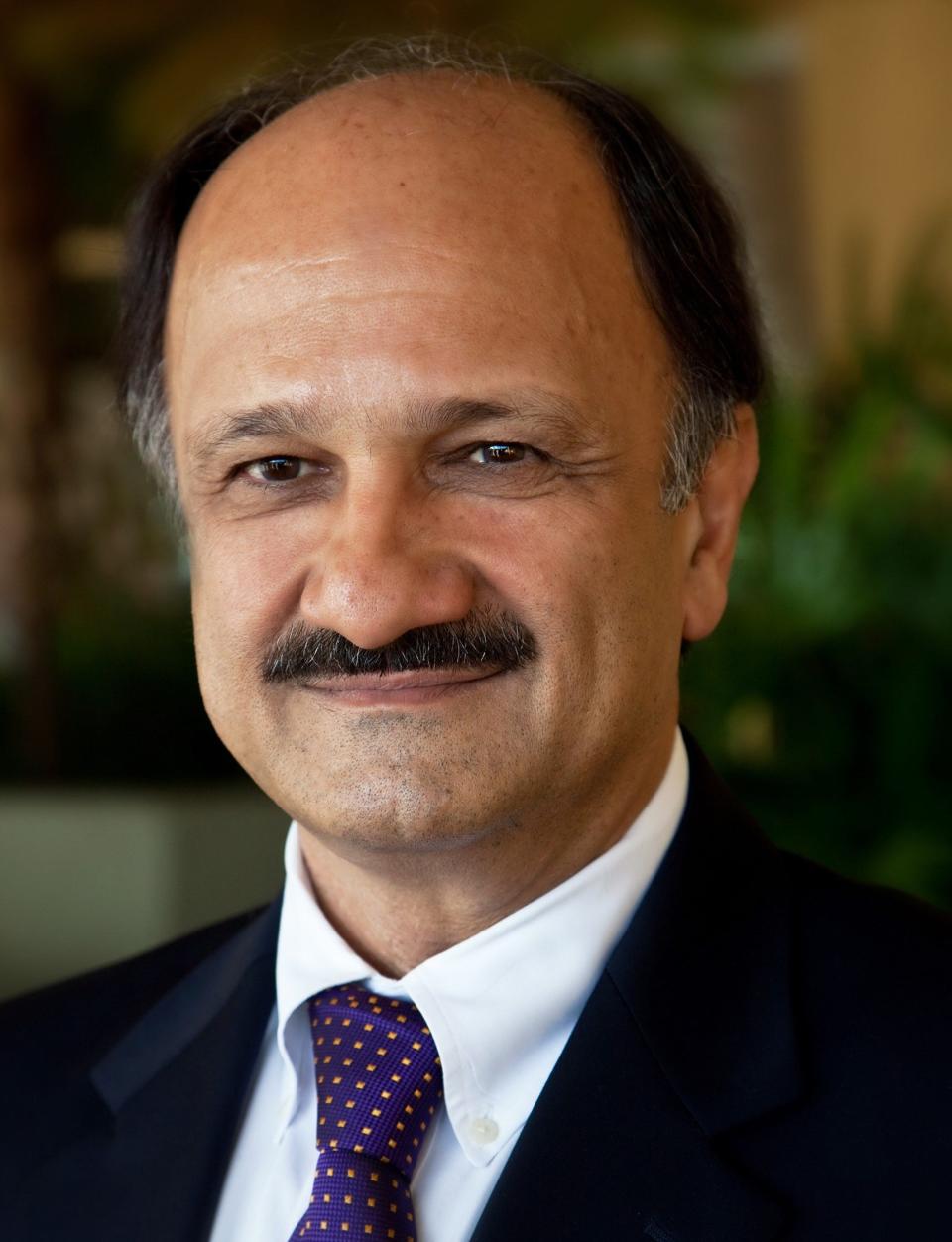Guest column: What is the option when economic sanctions hurt us all?
The recent OPEC Plus production cutback pushed oil prices up, causing another increase in cost of production and its consequent inflationary impact. Two of the principal players within OPEC Plus are Saudi Arabia and Russia. Seven months ago, the United States and a number of its allies put economic sanctions on Russia when it invaded Ukraine.
President Biden, in a speech on March 26 while visiting Poland, predicted that Russia’s ruble will be reduced to rubble and its economy will be cut by half. This has not happened and after an initial decline, the ruble surged to the extent that the Central Bank of Russia had to cut its interest rate several times to prevent the value of its currency from rising further.
Meanwhile, the death toll in both countries has been escalating and every day the world is faced with the danger of a nuclear war. According to the latest report by the World Bank, Ukraine’s economy is projected to contract by 35% this year and more than 14 million people are estimated to have been displaced. Recovery and reconstruction of the country will cost at least $349 billion, which is more than 1.5 times the size of Ukraine’s pre-war economy in 2021.
It is clear that Russia is selling its oil and gas to other countries, which have not followed the sanctions imposed on Russia. Argus Media in the United Kingdom reports that Russia’s ability to fund the war has been helped by high oil and gas prices. Crude oil revenues rose 41% over the past year, and oil sales make up 40% of Russia’s total exports. There is no doubt that winners of this human tragedy have been arms sellers and fossil energy producers.
Unfortunately, the United States and a good number of other countries chose to increase their interest rate for fighting inflation, which has pushed the world into a recession. Most people might not know that the rise of interest rates in developed countries has a devastating impact not only on their own economies, but — to a much higher extent — on the economies of low-income countries. A study conducted by Debt Justice shows that interest rates had risen by an average of 5.7 percentage points for low-income countries compared with a 2-point increase in the U.S. In most of the 27 countries that provided data for the study, the cost of new borrowing rose from 10.2% to 46% since the start of 2022.
If this was not understood before, it should be clear by now that any war that brings negative economic consequences in developed countries will certainly create a much worse impact in low-income countries. In other words, the economic cost of war is likely to impact other countries and, in particular, low-income countries, which might have done nothing toward creation of the war.
The issue is not to let aggregation against other countries go without any condemnation and denunciation by the world community. The issue is to prevent such developments before the crises get out of control. The problem is to reach an understanding that the impact of any war is global and there is no winner. We need to realize that the world has changed and with it the era of gunboat diplomacy is over, and we need to wake up and think about our world as a world that is totally interdependent. Adhering to principles of humanity require realism, tolerance and feeling of oneness as citizen of Earth.
By the end of the current decade, the world is likely to face unsurmountable ecological challenges, which may bring unimaginable economic and social difficulties for the global society. We need every possible means of mobilizing our resources for managing our lives on Earth. By 2030, some 60% of the world GDP will be produced in developing economies. Sanctions will not work as they may very well be imposed on the ones who impose them.
We need global governance rooted in understanding of each other’s history, culture and humanity, and focused on protecting life on Earth against the existing and emerging environmental challenges. The only chance for such governance is to strengthen the ability of the United Nations to create a framework for co-empowering of all nations regardless of their size, military or economic might.

Jamshid Damooei, Ph.D., is the executive director of the Center for Economics of Social Issues at California Lutheran University.
This article originally appeared on Ventura County Star: Guest column: What is the option when economic sanctions hurt us all?

